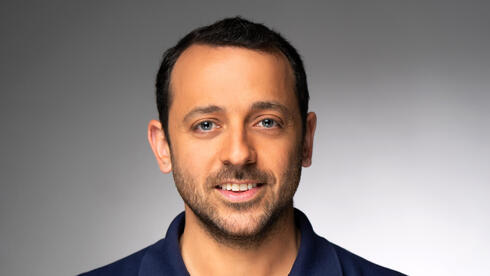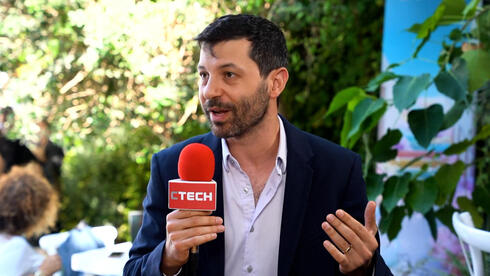
Opinion
$40 billion will be gone by 2027 – and your bank account could be next
Generative AI is putting banks in serious crisis, making it impossible for them to distinguish between reality and forgery; Israel can lead the global effort to prevent a world where we lose our digital identity.
In the age of generative AI, the global banking system faces an existential threat, unlike anything seen in history. Generative AI has not only transformed the way we create content – it has also rendered some traditional banking information security methods obsolete. Today, AI can bypass bank authentication, identification, and security protocols with relative ease.
Sam Altman, CEO of OpenAI, recently noted that today, AI voice clones can mimic people in ways that are "indistinguishable from reality" and will necessitate new verification methods. This means that every phone call to the bank, every video call, and even scanned identification documents can be forged with unprecedented ease, in a world where a synthetic reality is so easy to produce.
Over the past three years, there has been an alarming increase of over 2,100% in the use of deepfakes for identity theft and financial fraud attempts. A report by the Deloitte Center for Financial Services found that AI-enabled fraud resulted in losses of $12 billion in 2023, and is projected to cause approximately $40 billion in annual losses by 2027 in the U.S. alone.
Current technology makes it possible to create a perfect voice clone in mere seconds – a three-second voice sample now suffices to generate a perfect fake, that can steal millions using an AI-generated synthetic voice sample. Meanwhile, deepfake videos generated and broadcast in real time are already causing significant damage: A financial employee at a multinational corporation was tricked into transferring $25 million to fraudsters impersonating the CFO on a conference call. AI can now produce fake ID cards, passports, pay stubs, and entry permits, with quality that passes routine security checks, using generative software available to anyone online and requiring only minutes to complete.
Beyond these "direct" fakes, AI systems are developing far more sophisticated capabilities: they analyze purchasing patterns, money transfers, and banking activity to create credible behavioral profiles, allowing them to perform actions that appear "normal" to existing security systems and will not show up on their radar. Attackers also use AI to analyze personal information from social networks and craft customized fraud scenarios –augmenting social engineering capabilities in a way that is very difficult to counter. Thus, the threat no longer stems solely from the technical ability to create forgeries, but from the ability to construct an entirely convincing "synthetic truth."
The Israeli Angle: Innovation vs. a Global Threat
Israel, as a global leader in cybersecurity, fintech, and artificial intelligence, has a significant advantage in the race to develop technologies that address this growing global threat to the banking sector.
Israeli companies are already developing advanced solutions to this significant banking challenge – from leveraging AI tools for in-depth transaction analysis and detection of emerging fraud patterns, to technologies that establish users’ digital DNA for real-time anomaly detection, deepfake detection technologies, and multi-layered digital identity protection technologies.
It appears the solution will ultimately be not only technological, but require a holistic approach that combines existing technologies to create advanced, layered biometric protection, analyze the broader context of financial activity, thoroughly verify data and activity sources, and continuously learn and update systems in real time about new AI capabilities and their fraudulent applications in the banking field.
We are in a race against time. Each passing day brings more advanced AI technologies that can threaten the financial security of millions of people. Banks in Israel and around the world must adopt the advanced solutions offered by fintech and cybersecurity companies to stay in this race.
The future of banking security depends on our ability not only to respond to AI threats, but to stay ahead of them. Israel, with its advanced technological ecosystem, can lead this fight – but time is running out. The crisis is already here, and the question is not whether we can address it, but how quickly we can do so.
In 18 months, your bank may no longer be able to distinguish you from the generative AI impersonating you. The race has begun – we must defend ourselves effectively in the world of digital identity, or find ourselves without one.
Lilach Danewitz is Director of Strategy and Partnerships at NTT Israel.















